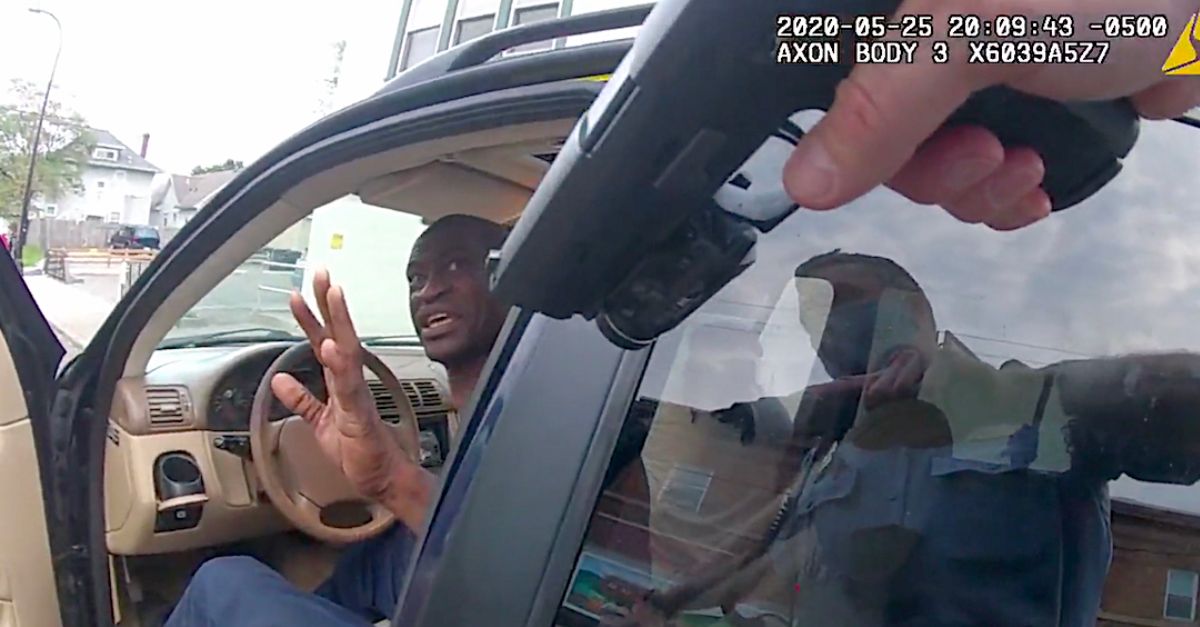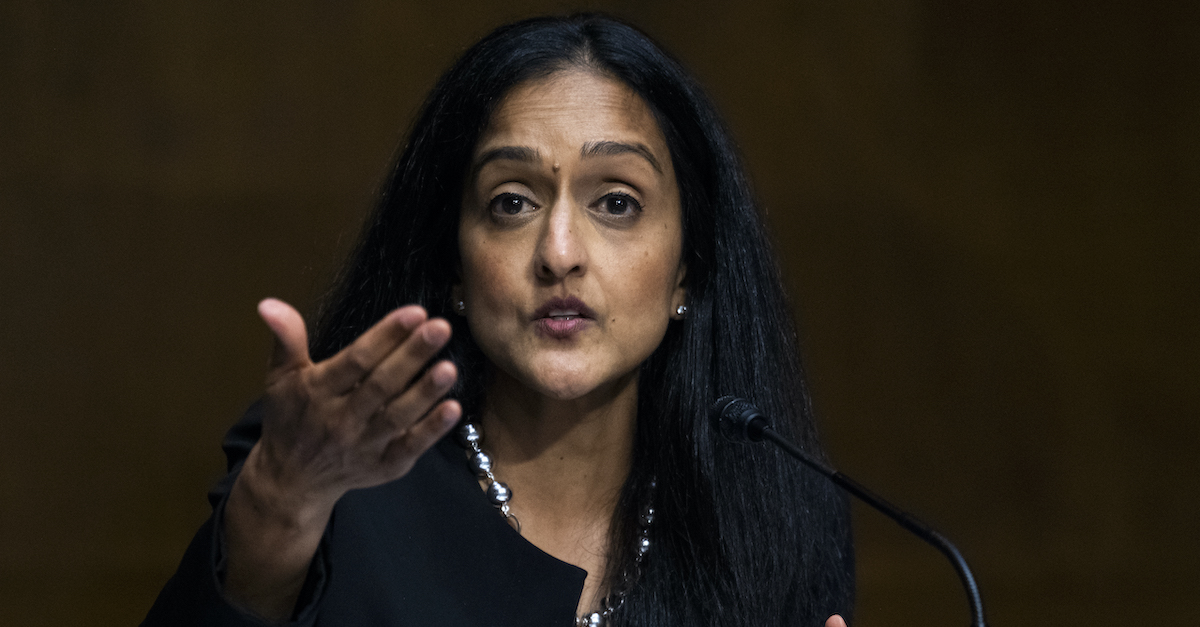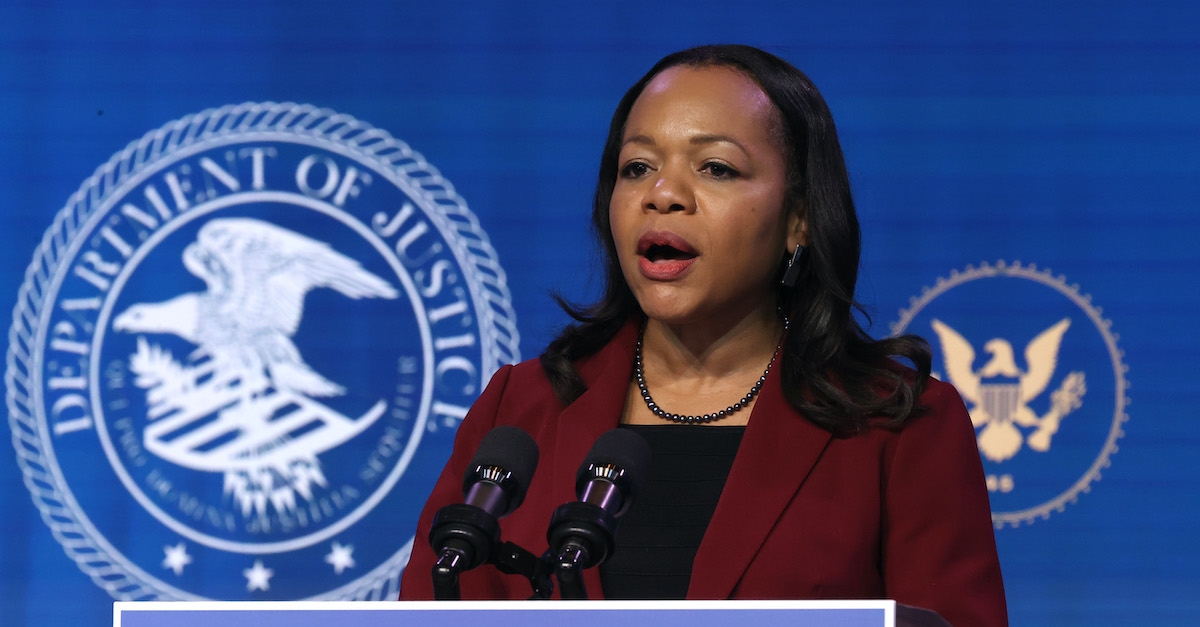
Police worn body camera footage from former Minnesota Police Officer Thomas Lane shows the arrest of George Floyd (via Hennepin County (Minn.))
Announcing a broad recipe for reform in the wake of the murder of George Floyd while in police custody, Attorney General Merrick Garland said that the Minneapolis Police Department signed an agreement placing it under the oversight of an independent monitor.
“George Floyd’s death had an irrevocable impact on his family, on the Minneapolis community, on our country, and on the world,” Garland said. “The patterns and practices of conduct the Justice Department observed during our investigation are deeply disturbing. They erode the community’s trust in law enforcement. And they made what happened to George Floyd possible.”
The Justice Department recommended 28 measures to clamp down on civil rights violations, including retaliation for free speech and discrimination against people with disabilities.
“To the credit of MPD and city lead leaders, some important changes have already been instituted,” Garland said Friday at a press conference. “Those include prohibiting all types of neck restraints and banning no-knock search warrants. But as the report outlines, there is more work to be done.”
The AG first announced his investigation shortly after the verdict of Derek Chauvin, stating that he would search for a “pattern or practice of unconstitutional or unlawful policing.”
The 92-page report makes four central findings, and the first goes to the heart of the Floyd tragedy — faulting the Minneapolis PD for using “excessive force, including unjustified deadly force.”
At the press conference, Garland shared a stage with his third-in-command Vanita Gupta, his civil division chief Kristen Clarke, First Assistant U.S. Attorney Ann Bildtsen for the District of Minnesota, Minneapolis Mayor Jacob Frey, and Minneapolis Police Chief Brian O’Hara.

Attorney General Merrick Garland (Photo by Samuel Corum/Getty Images)
Congress authorized the Justice Department to conduct investigations aimed at reforming police departments in 1994, some three years after and in response to the Rodney King riots. “Pattern or practice” investigations are sometimes known as “14141 cases,” after the U.S. Code section authorizing such investigations. During the Obama administration, such probes were relatively frequent: His Justice Department opened 11 of them and negotiated some 19 reform agreements from 2012 through the start of 2017.
Those included consent decrees and other agreements in Ferguson, Missouri; Albuquerque, New Mexico; Cleveland, Ohio; Seattle, Washington; New Orleans, Louisiana; Puerto Rico, and elsewhere.
Under the Trump administration, “pattern or practice” investigations fell into disfavor and disuse. His Justice Department emphasized defending the police against accusations of misconduct, even as Trump’s critics called his “law and order” messaging less about supporting police than protecting impunity.
Read Related Also: YNW Melly double murder trial live updates: Day 11 of witness testimony
Garland’s announcement on Friday appears to bode a revival of a police-reform tool, and Gupta — an Obama administration alum — emphasized that she knows about their effectiveness from experience.
“Through decades of experience, we have learned — and I have seen — firsthand that consent decrees can lead to real and lasting change,” Gupta said.

WASHINGTON, DC: Vanita Gupta, president and CEO of The Leadership Conference on Civil & Human Rights, testifies during a Judiciary Committee hearing in the Dirksen Senate Office Building on June 16, 2020, in Washington, D.C. (Photo by Tom Williams-Pool/Getty Images)
Chauvin racked up state and federal convictions for kneeling on Floyd’s neck for 9 minutes and 29 seconds on May 25, 2020. Both of those cases ended with sentences of decades of imprisonment.
In scrutinizing the tactic that led to Floyd’s tragic death, the Justice Department’s investigation found that Minneapolis police overused neck restraints.
“Neck restraints are lethal force, and we found that MPD officers often use neck restraints without warning people suspected of only minor offenses and on people who posed no threat,” said Clarke, the Biden administration’s civil rights chief.

WILMINGTON, DELAWARE – JANUARY 07: Kristen Clarke delivers remarks after being nominated to be civil rights division assistant attorney general by President-elect Joe Biden at The Queen Theater Jan. 7, 2021, in Wilmington, Delaware. (Photo by Chip Somodevilla/Getty Images)
Focusing on racial discrimination, Clarke said that MPD “unlawfully discriminates against Black people in its enforcement activities.”
“This is a first-time finding for us — that the police department also discriminates against Native American people in its enforcement activities,” she said.
The Justice Department reviewed five years of MPD data from Nov. 1, 2016, to Aug. 9, 2022, on roughly 187,000 traffic and pedestrian stops.
Have a tip we should know? [email protected]









